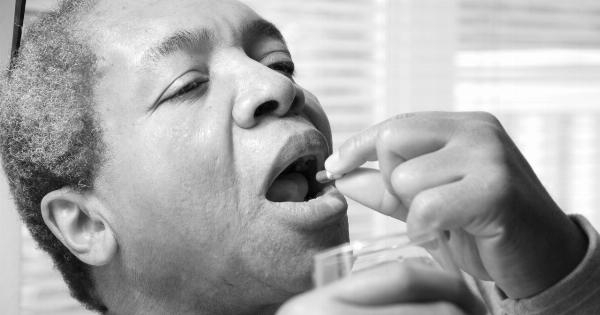The topic of birth control pills and their impact on mood has been a subject of debate for years.
Many women claim that these hormonal contraceptives have had a significant effect on their mental health, while others argue that there is no direct link between the two. In this article, we will explore the different viewpoints surrounding this controversial issue and analyze the scientific evidence to determine whether or not birth control pills are truly to blame for our mood.
Understanding Birth Control Pills
Before delving into the pill debate, it’s essential to have a basic understanding of how birth control pills work.
These oral contraceptives contain synthetic hormones, such as estrogen and progestin, which are meant to mimic the natural hormones produced by a woman’s body. By altering the hormonal balance, birth control pills prevent ovulation and thus, pregnancy.
It’s important to note that individual birth control pills may have different formulations, hormone levels, and side effects.
Therefore, any claims made about the impact on mood should be taken with caution, as the effects may vary depending on the specific type of pill taken.
Claims of Mood Alterations
One of the most common claims made by women who believe their birth control pills have affected their mood is an increase in anxiety and depression.
Some argue that these hormonal contraceptives disrupt the delicate balance of neurotransmitters in the brain, leading to these mental health issues.
Additionally, women have reported experiencing mood swings, irritability, and decreased libido while on birth control pills. These subjective experiences have fueled the debate surrounding the pill’s impact on mood.
The Scientific Perspective
While anecdotal evidence may provide some insight, it’s crucial to turn to scientific research for a more objective analysis of the pill’s effect on mood.
Numerous studies have been conducted to determine whether there is a direct correlation between birth control pills and mood alterations.
A study published in the Journal of Women’s Health followed over a thousand women who were using birth control pills and found no significant increase in depression or anxiety symptoms compared to those who were not on hormonal contraceptives.
These findings suggest that the pill does not have a direct impact on mood.
However, it’s important to note that not all studies have reached the same conclusion. Some research suggests that certain hormones in birth control pills can increase the risk of mood changes in certain individuals.
The variations in study outcomes reveal the complexity of the issue and further emphasize the need for individual assessment.
Other Factors at Play
It is crucial to consider that mood alterations experienced by women on birth control pills may not be solely attributed to the contraceptives themselves.
Many external factors can influence a person’s mood, including stress, lifestyle, pre-existing mental health conditions, and relationship dynamics.
Women who choose to take birth control pills are often at an age where significant life changes and transitions are taking place, such as starting a career or forming long-term relationships.
These factors can contribute to mood fluctuations, making it challenging to determine whether the pill alone is responsible for any perceived changes.
Individual Variations and Side Effects
Every woman’s body is unique, and therefore, the way it responds to hormonal changes will differ. While some women may experience adverse mood effects while on birth control pills, others may not notice any difference at all.
Each person’s body chemistry and hormone levels interact differently with the synthetic hormones present in the pill.
It’s important for women considering or currently using birth control pills to be aware of potential side effects.
These may include mood changes, but it’s crucial to remember that they are not experienced by everyone and can vary significantly from person to person.
Alternative Contraceptive Options
For women who believe their birth control pills are negatively impacting their mood, it’s essential to consult a healthcare professional.
They can help evaluate the individual’s situation and discuss alternative contraceptive options that may suit their needs better.
Non-hormonal alternatives, such as barrier methods, intrauterine devices (IUDs), and fertility tracking methods, offer contraception without the use of synthetic hormones.
These alternatives may be a viable choice for those concerned about the potential mood-related side effects of birth control pills.
The Importance of Open Communication
Ultimately, the pill debate surrounding mood alterations reminds us of the significance of open communication between women and their healthcare providers.
If a woman feels that her birth control pills are negatively impacting her mood, it is essential to discuss these concerns with a professional.
Healthcare providers can provide support, guidance, and alternative options to ensure that women can make informed decisions about their contraception without compromising their mental well-being.
Conclusion
The pill debate surrounding its impact on mood is complex and multifaceted. While some women claim to experience mood alterations while using birth control pills, scientific research has been inconclusive in proving a direct causal relationship.
Other factors, such as lifestyle, stress, and individual body chemistry, can contribute to changes in mood, making it difficult to solely attribute these alterations to the pill.
It is essential for women to have open and honest conversations with their healthcare providers about their experiences and concerns.
Together, they can explore alternative contraceptive options and ensure that the chosen method suits both the woman’s lifestyle and her mental well-being.































